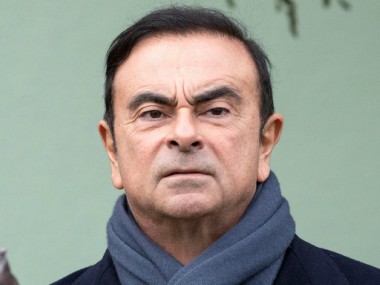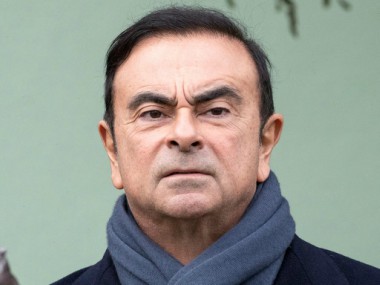Former Renault and Nissan boss Carlos Ghosn said on Thursday that he alone set up his flight to Lebanon from Japan, where he is facing trial over alleged financial misconduct, and denied any involvement by his family. “The media reports saying my wife Carole and other family members played a role in my departure from Japan are falsehoods. I alone organised my departure,” Ghosn said in a brief statement received by AFP. Beirut receives Interpol notice Lebanon’s justice minister said on Thursday that Lebanon has received an international wanted notice from Interpol for Nissan’s ex-chair Carlos Ghosn, four days after he fled Japan to Lebanon before a trial on financial misconduct charges. Albert Serhan told The Associated Press in an interview that the Red Notice for the former automotive titan was received earlier Thursday by the prosecution. [caption id=“attachment_5591381” align=“alignleft” width=“380”]  A file photo of Carlos Ghosn. Reuters[/caption] Ghosn skipped bail before his much-anticipated trial, which was to start in April. He arrived in Lebanon, his country of origin, on Monday via Turkey and hasn’t been seen in public since. Authorities have said that he entered legally on a French passport.
Interpol’s so-called Red Notices are requests to law enforcement agencies worldwide that they locate and provisionally arrest a wanted fugitive. Serhan, the minister, said the Lebanese prosecution “will carry out its duties”, suggesting for the first time that Ghosn may be brought in for questioning.
But he said that Lebanon and Japan do not have an extradition treaty, ruling out the possibility that Beirut would hand Ghosn over to Japan Japanese prosecutors on Thursday raided Ghosn’s Tokyo home. Japanese media showed investigators entering the home, which was Ghosn’s third residence in Tokyo since he was first arrested a year ago. Authorities have now searched each one. Tokyo prosecutors and police did not immediately comment. Government offices in Japan are closed this week for New Year holidays. It was unclear how Ghosn avoided the tight surveillance he was under in Japan and showed up in Lebanon. Ghosn said Tuesday in a statement that he left for Lebanon because he thought the Japanese judicial system was unjust, and he wanted to avoid “political persecution”. He said he would talk to reporters next week. Lebanon has said earlier that Ghosn entered the country legally, and there was no reason to take action against him. Ghosn’s lawyers in Japan said they had no knowledge of the escape and they had all his passports. Ghosn has French, Lebanese and Brazilian citizenship. Japanese public broadcaster NHK TV, without identifying sources, reported Thursday that Ghosn had two French passports. Earlier, Japanese reports said there were no official records in Japan of Ghosn’s departure, but a private jet had left from a regional airport to Turkey. Turkish state-run Anadolu Agency said Thursday that Turkish authorities had detained seven people as part of an investigation into how Ghosn fled to Lebanon via Istanbul. The private DHA news agency reported that those detained are 4 pilots, a cargo company manager and two airport workers. The Hurriyet newspaper said the plane carrying Ghosn landed at Istanbul’s Ataturk Airport at 5:30 AM on 29 December. Ghosn was not registered upon landing and was smuggled onboard another plane that left for Lebanon, the paper reported.
Ghosn, who was charged in Japan with under-reporting his future compensation and breach of trust, has repeatedly asserted his innocence, saying authorities trumped-up charges to prevent a possible fuller merger between Nissan Motor Co and alliance partner Renault SA.
The 1.5 billion yen ($14 million) bail that Ghosn posted on two separate instances to get out of detention is being revoked. --With PTI inputs


)
)
)
)
)
)
)
)
)



